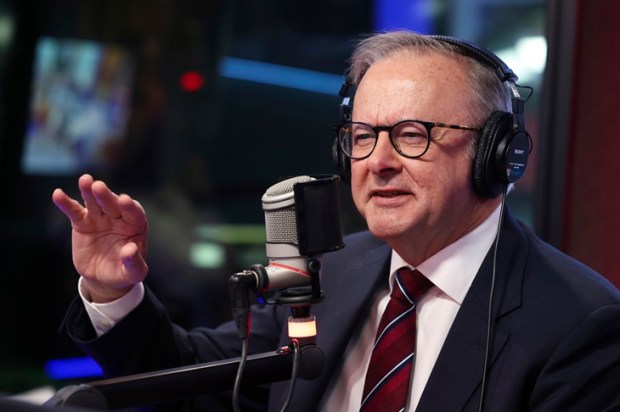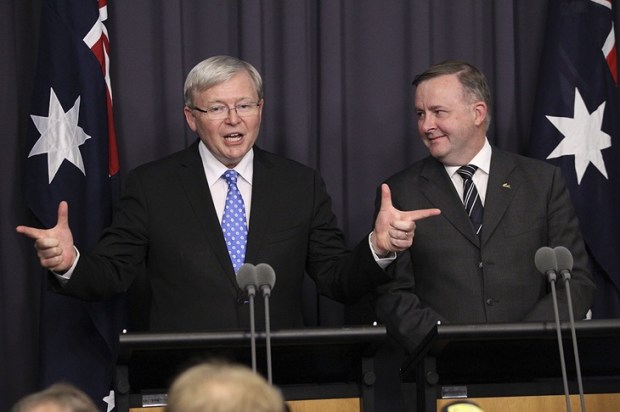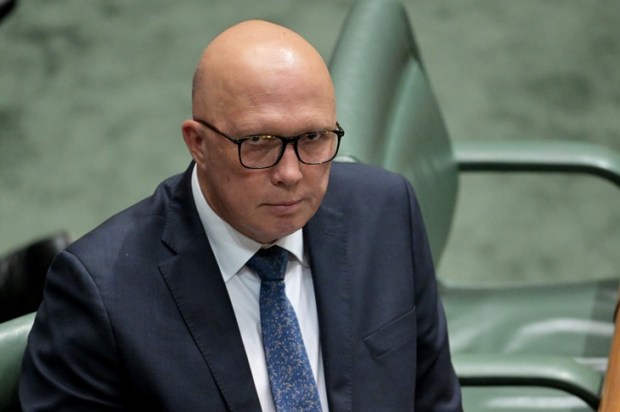Anthony Albanese has a knack for political sleight of hand. His latest trick? Framing his government’s failure to secure an exemption from Donald Trump’s steel and aluminium tariffs as a noble defence of Australian jobs and a shield against inflation. It’s a compelling narrative – if you don’t look too closely at the facts.
The truth is, these tariffs were never going to significantly dent our economy. What they do reveal, however, is a government more adept at pointing fingers than addressing the real drivers of Australia’s economic malaise: excessive spending, declining productivity, and a lack of clear strategy to boost business confidence.
Let’s start with the numbers. Australia’s trade with the US accounts for just 3 per cent of our total exports, making it a minor player compared to our top partners like China and Japan.
When it comes to aluminium – the focus of Trump’s latest tariffs – only 10 per cent of our exports head to the US, while 34 per cent go to South Korea. Steel exports tell a similar story. The idea that these tariffs pose a grave threat to Australian jobs or inflation is, frankly, far-fetched.
What’s more telling is Albanese’s failure to negotiate an exemption, something the Morrison government achieved in 2018. Rather than admit a diplomatic misstep, the Prime Minister has spun this into an act of economic virtue. It’s a curious stance for a government that’s otherwise shown little hesitation in aligning with US policy – think of the Reserve Bank’s overly aggressive rate hikes mirroring the Federal Reserve, despite our differing economic conditions.
On trade, where alignment might have been politically savvy, Labor has faltered.
Albanese would have us believe that external shocks like Trump’s tariffs are fuelling Australia’s inflation woes. But this doesn’t explain why our inflation is running hotter than in many comparable economies or why wages aren’t keeping pace with rising costs. The roots of our price pressures are domestic – and largely of Labor’s own making.
Government spending has ballooned, with a growing public sector and programs heavy on cost but light on economic return. At the same time, productivity is sliding: businesses are producing less per worker, driving up costs and squeezing margins. The capital-to-labour ratio – a key measure of investment in productivity – has fallen by 4.9 per cent, as firms hold back on new equipment and tools amid uncertainty. The falling exchange rate of the Australian dollar does not help; most of the equipment is imported. For example, Caterpillar machines are imported from the USA. With the record migration number, it is practically impossible to increase the capital at the same rate. Without a clear policy on tax, industrial relations, or trade, that uncertainty isn’t going anywhere.
These aren’t problems born in Washington. They’re the result of decisions made in Canberra – decisions Albanese seems eager to gloss over by gesturing vaguely at Trump.
If the government were serious about trade threats, it would be focusing on a sector where Australia is genuinely exposed: beef exports. The US takes over a quarter of our beef sent overseas, making it our largest market. Tariffs here would hit far harder than anything in steel or aluminium. Yet Labor’s fixation on the latter suggests this isn’t about economic strategy – it’s about narrative control, a distraction from deeper failures.
With an election looming and cost-of-living pressures dominating voters’ minds, Labor’s broader economic approach – or lack thereof – is coming into sharp relief. Instead of tackling inflation at its source by trimming wasteful spending and fostering private sector growth, the government continues to expand the public sector while ignoring productivity challenges. Business confidence remains weak, and rather than providing clarity to encourage investment, Labor seems content to let ambiguity fester.
At every turn, Albanese avoids the hard choices. Blaming Trump, the Reserve Bank, or global headwinds is easier than confronting the policy missteps that have left Australians grappling with rising prices, mortgage stress, and a declining standard of living.
Albanese’s tariff saga isn’t a bold stand for workers – it’s a diplomatic fumble dressed up as economic wisdom. The argument that Trump’s tariffs are a major driver of inflation doesn’t hold water, not when the real culprits – government overspending, productivity declines, and policy inertia – are so glaringly domestic.
Australians aren’t struggling at the checkout because of US trade policy. They’re struggling because of choices made at home. No amount of finger-pointing across the Pacific will change that reality – or convince voters that Labor has a plan to fix it.

























